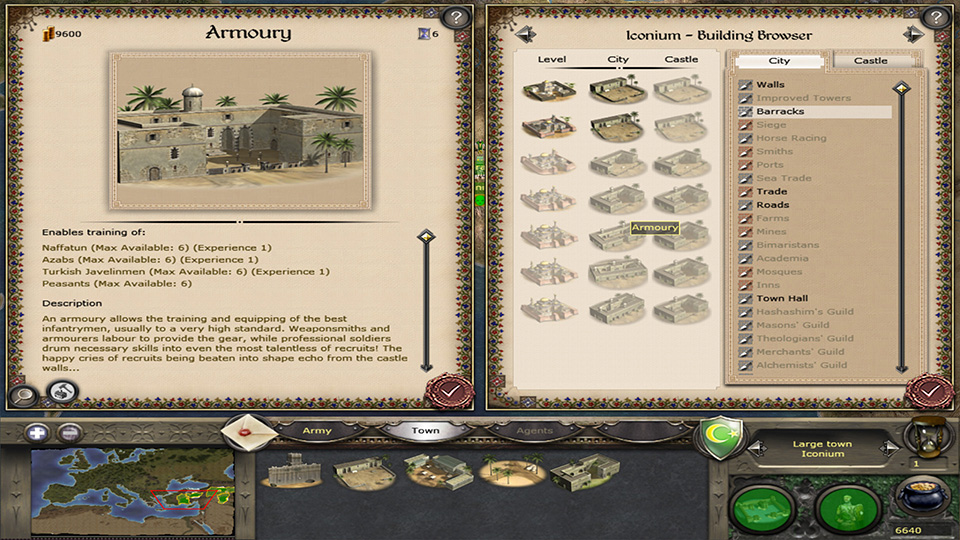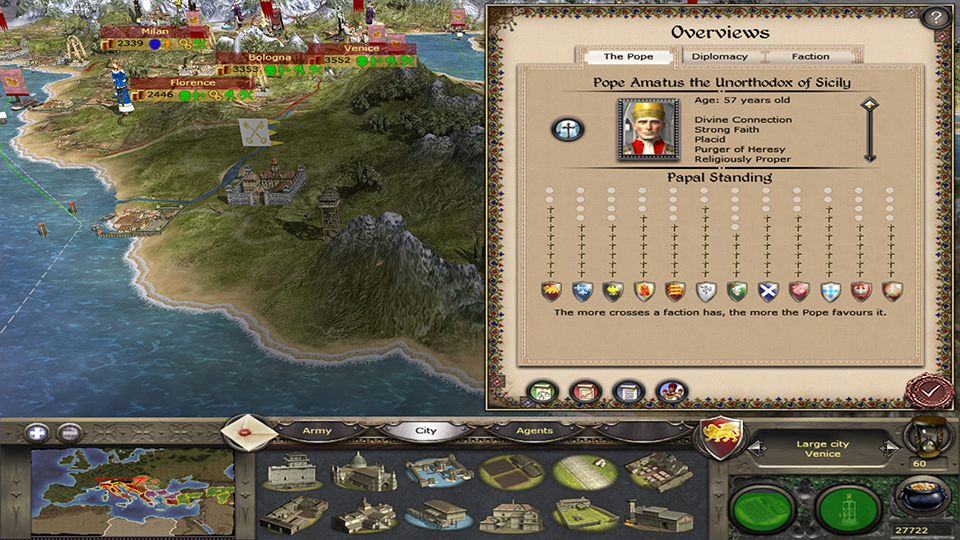How to Play
Battles
Real-time battles and sieges are instigated on the map screen, and are fought against the enemy on 3D battlefields. At your disposal: cavalry, archers, infantry and weapons such as the catapult, trebuchet and cannon.

Map screen
The map screen provides an overview of the campaign: you will see your cities and castles, your territory and the position of your units. You can also see other factions' territories, cities and castles, and even their units.
This part of the game is turn-based and it's here that you make all your strategic decisions, move your units around the world and engage in diplomacy with other factions.

Building an army
Military units – both men and arms – must be recruited or built in your cities and castles – each unit takes time and money to train or create, with advanced units taking multiple turns to complete. As new technology is researched, new and more deadly military units become available.

Economy
While castles act as factories for building your army, cities generate income for your kingdom. A strong economy is vital; without money you can't train troops, construct buildings or defend your territory.

Buildings
There are a huge variety of buildings in Medieval II. Some enable you to build new unit types, while others will generate money, improve defences, or increase your citizens' happiness. Buildings are constructed in cities and castles and, like units, require time and money to create.

Agents
Agents are special units, with important and influential abilities. There are numerous types of agent, each with potentially critical roles; for example, Princesses can form alliances through marriage; Assassins can kill specific enemy leaders; Emissaries can negotiate treaties; Priests can spread religion.

Religion
Religion is an aid to growing population, managing happiness and increasing income. It can also unite factions under a common banner so is often helpful when making alliances with other factions.

Diplomacy
Emissaries enable you to negotiate treaties and deals with other factions, such as trade agreements, military alliances or the exchange of territory.



